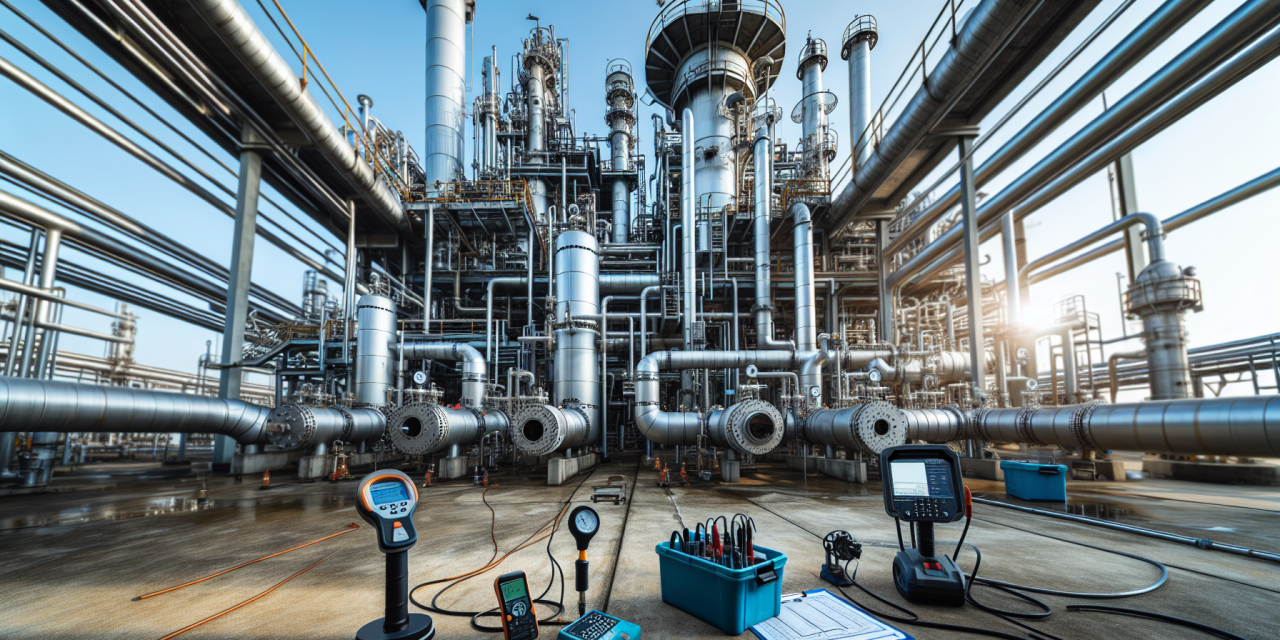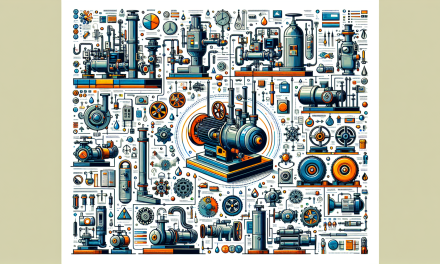Table of Contents
- Introduction
- The Importance of Inspection, Evaluation, and Repair
- Overview of the Inspection, Evaluation, & Repair of Process Plant Equipment & Connected Piping Conference
- Key Inspection Techniques
- Evaluating Equipment and Piping
- Repair Methods for Process Plant Equipment
- Networking Opportunities
- FAQs
- Conclusion
Introduction
Process plants operate in highly dynamic environments, where efficiency and safety are non-negotiable. Consequently, understanding the methods involved in the inspection, evaluation, and repair of process plant equipment and connected piping becomes paramount. In this context, the Process Plant Equipment & Piping Inspection Techniques Conference emerges as a pivotal event that brings together industry leaders, professionals, and researchers to exchange knowledge and insights.
The Importance of Inspection, Evaluation, and Repair
Why are inspection, evaluation, and repair essential components of maintaining process plants? First, regular inspections help prevent accidents and malfunctions that can cause significant losses in productivity and safety hazards. Furthermore, evaluating the condition of equipment allows experts to identify potential failures before they occur. Thus, timely repairs can enhance overall operational efficiency.
Safety First
Safety in process plants cannot be overstated. Regular inspections are crucial for early detection of issues that may pose risks to personnel and operations. Moreover, adopting a proactive approach to equipment evaluation ensures compliance with safety regulations.
The Role of Technology in Inspections
Technology plays a crucial role in enhancing inspection processes. Innovations such as drones, ultrasound testing, and thermal imaging have revolutionized how inspections are conducted. Consequently, these technologies improve the accuracy and speed of inspections, allowing teams to address issues more quickly.
Overview of the Inspection, Evaluation, & Repair of Process Plant Equipment & Connected Piping Conference
This conference serves as a platform for sharing groundbreaking research, innovations, and best practices in process plant equipment and piping inspection. Organizers invite industry professionals to engage in discussions, workshops, and presentations that cover a wide range of topics.
Topics Covered
- Inspection technologies and methodologies
- Common equipment failures and their solutions
- Piping integrity assessment techniques
- Regulatory compliance and standards
- New advancements in repair technologies
Key Inspection Techniques
Attendees at the conference will benefit from hands-on workshops where they can learn about various inspection techniques. Some promising techniques include:
Nondestructive Testing (NDT)
NDT techniques, such as magnetic particle testing and radiographic inspection, are invaluable tools in detecting flaws without causing damage to the equipment. Thus, these methods enable professionals to maintain equipment integrity while minimizing downtime.
Visual Inspection
Often the first step in the inspection process, visual inspection allows technicians to assess obvious signs of wear or damage. During the conference, participants will learn how to conduct effective visual inspections using various aids, such as checklists and magnification tools.
Evaluating Equipment and Piping
Once inspections have been conducted, it’s essential to evaluate the findings comprehensively. Evaluation entails analyzing the collected data to determine the health and functional capability of plant equipment.
Condition Monitoring
Condition monitoring techniques include vibration analysis and thermographic inspections. By utilizing these techniques, professionals can predict equipment failure and schedule maintenance effectively.
Risk Assessment
Risk assessments guide decision-makers in prioritizing maintenance activities. Understanding potential risks ensures that resources are allocated appropriately, ultimately enhancing plant reliability.
Repair Methods for Process Plant Equipment
After identifying issues through inspections and evaluations, it’s vital to implement effective repair methods. The conference will delve into various traditional and innovative repair techniques.
Conventional Repairs
Conventional repair methods, such as welding and replacement of components, are still widely used. However, during the conference, attendees will also explore modern techniques like composite repairs.
Composite Repairs
Composite materials have gained popularity for their strength and lightweight properties. These materials can provide long-lasting repairs while being more cost-effective in specific applications.
Networking Opportunities
A significant advantage of attending the Inspection, Evaluation, & Repair of Process Plant Equipment & Connected Piping Conference is the networking opportunities it presents. Participants can build connections with experts, peers, and businesses in the field. These connections can lead to fruitful collaborations and invaluable insights.
Building Professional Relationships
Networking encourages the exchange of ideas and experiences. It creates an environment where professionals can learn not only from keynote speakers but also from fellow attendees.
Gaining Diverse Perspectives
By interacting with professionals from various backgrounds, participants will gain insights that can influence their own practices. This diverse exchange enriches the learning experience.
FAQs
What is the focus of the Inspection, Evaluation, & Repair of Process Plant Equipment & Connected Piping Conference?
The conference focuses on sharing knowledge and best practices regarding the inspection, evaluation, and repair of process plant equipment and connected piping. Experts discuss new techniques and technologies while emphasizing safety and efficiency.
How can I benefit from attending this conference?
Attending the conference will provide insights into the latest inspection technologies and repair methods. Additionally, you will have a chance to network with industry professionals and speakers, which can lead to new opportunities and collaborations.
Are there any resources for further learning on this topic?
Yes! Consider exploring these insightful blog posts: Unlock Your Potential: The Ultimate Guide to Goal Setting, Planning & Decision Making Events, Exploring the Core Principles of Chemical Engineering: Insights from the Fundamental Conference, Essential Insights into the Fundamentals of Chemical Engineering Conference, Unlocking Efficiency: How the Warehouse Inventory Optimization Conference Enhances Operations, and Mastering the Art of Training Coordinator Skills: Elevate Your Expertise and Impact.
Conclusion
Attending the Inspection, Evaluation, & Repair of Process Plant Equipment & Connected Piping Conference offers tremendous benefits for professionals looking to stay ahead in the ever-evolving field of process engineering. By exploring innovative inspection techniques, evaluation methodologies, and repair strategies, you’ll enhance both your knowledge and skills. Moreover, the networking opportunities available at the conference can lead to valuable connections and collaborations that can propel your career forward. Don’t miss this chance to be part of a community dedicated to excellence in process plant operations.





